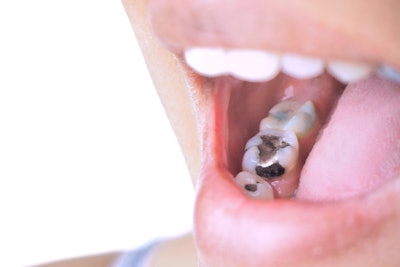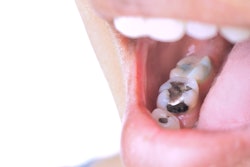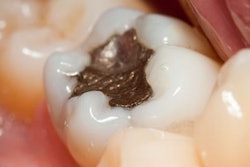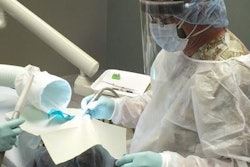
The ADA Forsyth Institute (AFI) received a $6.2 million grant from the U.S. National Institute of Dental and Craniofacial Research (NIDCR) to develop artificial intelligence (AI)-powered smart materials for fillings.
The new dental composite is designed to replace amalgam. It features self-healing, antimicrobial properties, and nanofillers that respond to biological signals, according to a press release dated September 30 from the ADA.
"Incorporating artificial intelligence and virtual lab simulations into the physical material development process, based on well-defined laws of physics and chemistry, will accelerate our goal of transforming personalized dental care," Jirun Sun, PhD, the principal investigator, said in the release.
In September 2020, the FDA advised that high-risk individuals, such as pregnant women, should avoid getting dental amalgam fillings "whenever possible and appropriate." For the first time, the agency also listed patients with multiple sclerosis, Alzheimer's disease, and Parkinson's disease as high-risk individuals for amalgam fillings.
Between 2017 and 2023, dental amalgam use has dropped by about 80%, according to a study published in September. The decline, though, was the smallest among socially vulnerable groups identified as being at higher risk of health issues from mercury exposure.
The new material being developed will be optimized as a viable replacement, offering a cost-effective and durable solution, according to the release.
The transdisciplinary team of scientists will combine experiments with physics-based testing models and data-driven simulations to design and evaluate these complex, dynamic materials. In partnership with Optimuos, a digital engineering firm specializing in digital twin technologies, the AFI team is developing an AI-driven solution.
While current alternative materials exist, they often require more frequent replacement and are more expensive. With the five-year grant, the researchers' goal is to create materials that are easy to use and accessible to all, according to the release.
"Our institute is well positioned to leverage the new tools of bioengineering, AI and data science to accelerate discovery and impact oral health," Dr. Ben Wu, PhD, chief scientific officer and chief operating officer of AFI, said in the release.




















